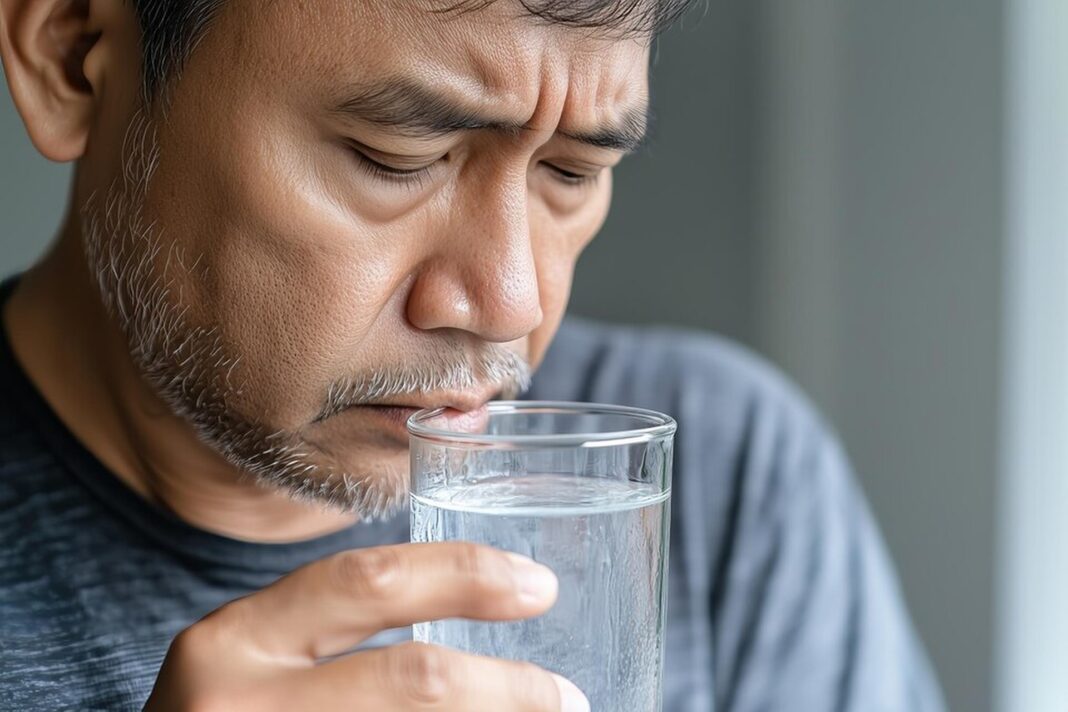Understanding Dehydration
Dehydration occurs when fluid loss exceeds intake. It affects individuals of all ages and activity levels. Dehydration has several causes. This condition is commonly caused by heat, activity, sickness, and dehydration. Mild dehydration may harm. Normal physiological functions may be impaired. This makes understanding dehydration’s origins and development vital.
The human body needs water for many things. It controls organ function, joint lubrication, and temperature. Without water, the body struggles to conduct these processes. Struggle may cause major health effects. Extreme dehydration may cause kidney stones, UTIs, and more. Recognizing this illness early is crucial. Understanding dehydration improves decision-making. Encourages proactive fluid intake.
Different populations may dehydrate more easily. Risks are greater for children and seniors. Their body may not convey thirst well. Chronically unwell people must also watch their hydration consumption. Also, athletes and hot-climate residents must be careful. Wellness requires staying hydrated in these settings.
Recognizing The Symptoms
Recognizing dehydration signs may avoid significant health complications. Thirst, dry mouth, and weariness are symptoms. This usually means the body needs more water. Dizziness and dark yellow urine are further symptoms. Headaches and disorientation may accompany these symptoms. Rapid pulse and low blood pressure might arise from severe dehydration. Early detection of these signs helps treat dehydration.
Thirst is generally the first sign. Thirsty people should drink water. Dry skin might indicate dehydration. A fast skin squeeze may determine hydration. Drinking more water may help the skin recover faster. All of these indicators need rapid hydration.
Most people feel minor dehydration. It follows exercise or heat. Rehydrating after that is easy to miss. The young are particularly susceptible. They may miscommunicate needs. Parents should monitor their kids‘ hydration.
Knowing these signs empowers people. People may respond immediately when they see dehydration. Actionable information promotes health. It keeps everyone hydrated all day.
The Importance Of Staying Hydrated
Hydration is essential to wellness. Water is essential to most body functions. It controls body temperature, digestion, and energy. Hydration improves bodily function. Staying hydrated improves mood and productivity. Numerous and major advantages.
Drinking water boosts attention and alertness. Fatigue and cognitive deterioration may result from dehydration. Plenty of research shows that even modest dehydration may affect brain function. Students and professionals must hydrate. Hydration boosts happiness and cognition.
Physical performance requires enough water. This is particularly true during exercise or laborious tasks. Water improves muscular function and recovery. Cramping, heat stress, and endurance loss may result from dehydration.
Hydration is crucial for athletes. This helps kids perform well and prevent damage. Hydration boosts skin and bodily wellness. Hydrated skin looks younger and stronger. Drinking enough water improves skin suppleness.
It decreases dryness and wrinkles. Hydration affects health and attractiveness. Hydrating is a simple yet effective health strategy. Hydrating well improves life quality. Energy, attention, and well-being depend on it.
How Much Water Do You Really Need?
People require different amounts of water. Age, weight, exercise, and climate are factors. The standard daily recommendation is eight 8-ounce glasses. Others may need more. Personal hydration requirements are important for health.
Individual water demands vary. Active people or those in hot climates may require more water. Daily, the Institute of Medicine advises 3.7 liters for males and 2.7 for women. This includes all daylong fluids. Water is also provided by food. Fruits and veggies are water-rich. Water and a healthy diet go together.
Listening to the body is crucial. The most natural need indication is thirst. Drink water when thirsty. Using rigid rules alone may dehydrate you. Prioritize personal hydration.
Groups may have special needs. Nursing and pregnant women require more fluids. This helps them and their infants. Elderly people may need water reminders. Their body may not convey hunger so well.
Individuals require different amounts of water. Monitor personal signals to stay hydrated. Water intake customization keeps the body healthy and functioning.
Impact Of Dehydration On Physical Performance
Physical performance is affected by dehydration. Reduced strength, endurance, and tiredness may result. These consequences may impair physical activity. Hydration levels affect athletes especially. Dehydration may hinder performance even slightly.
Physically active people must manage hydration. Sweat is lost during exercise. Not replacing these fluids causes dehydration. Increased heart rate and reduced blood volume might result. A decline in blood volume hinders cardiac pumping.
Early weariness results from less oxygen to muscles. Mental performance diminishes. Dehydration causes disorientation and slower response times. Coordination and decision-making may be difficult for athletes. Hydration maintains physical and cognitive function.
Dehydration hinders recovery. Drinking water helps the body recuperate from activity. It flushes away exercise-related toxins. Recovery may take longer for dehydrated people. This may hinder training.
Hydration is essential. It aids performance and recovery. During exercise, athletes should drink fluids. Hydrating regularly prevents dehydration and health problems.
What Are The Best Ways To Stay Hydrated?
Planning can make staying hydrated easy. While drinking water is important, there are alternative ways. Keep a water bottle handy. Note to self: drink water frequently. Adding fruits or herbs to water makes it more delicious.
Eating water-rich meals helps. Delicious fruits include watermelon and oranges. Hydrating vegetables include cucumbers and celery. Drinking breaks are essential during exercise. It quickly replenishes fluids.
Water consumption may be tracked using apps and reminders. This helps many individuals retain excellent behaviors. Hydration should be an everyday priority. Over time, little effort might pay off.
When Should You Increase Your Water Intake?
Water intake must be increased in certain cases. Fluid replenishment is essential during exercise, particularly in hot conditions. Drink water before, during, and after exercise. Illness might need more hydration. A fever, vomiting, or diarrhea causes fluid loss. Additional water helps restore equilibrium.
Travelers at high altitudes should drink more. Altitude might increase fluid loss. Women who are pregnant or breastfeeding need extra fluids. Hydration supports their requirements and the baby’s. Hot and humid regions need caution. Increase water intake to beat the heat. Understand these scenarios to stay hydrated. These steps keep the body healthy and functioning well.































